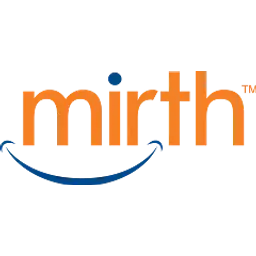Certification and Compliances & Compliance
ONC Certification
ONC (Office of the National Coordinator for Health Information Technology) is an entity within the U.S. Department of Health and Human Service. ONC issued its Standards and Certification Criteria Final Rule on July 13, 2010. The criteria establish the required standards and capabilities that certified EHR technology must have to achieve meaningful use stage 1. The Centers for Medicare and Medicaid Services (CMS) issued a companion rule on July 28, 2010, which established the minimum requirements healthcare providers must meet to qualify for payments under the center's EHR Incentive Program.
ONC also established a voluntary Health IT Certification Program that provides for the certification of health IT standards. The agency does not test or issue certifications itself; ONC collaborates with organizations that it has authorized to act on its behalf. One such collaborator is ICSA Labs, which the ONC has authorized to certify Complete and Modular EHR technology for ambulatory and inpatient organizations.
Why is ONC Certification Important?: 21st Century Cures Update
The 2015 Edition Cures Act Update, which is the latest version of the ONC Health IT Certification Program, was released in 2022 as part of the 21st Century Cures Act. This version of the program aims to enhance the seamless and protected retrieval, sharing, and utilization of digital health data.
The ONC Health IT Certification Program strives to accomplish the following objectives:
- Ensure uninterrupted and secure access to Electronic Health Information (EHI).
- Foster an environment of innovation and competition by promoting the development of new applications.
- Encourage the widespread use of standardized Application Programming Interfaces (APIs) in healthcare systems.
- Prevent the practice of information blocking, which involves actions that hinder the access, exchange, or use of electronic health information.
- Address key areas such as Fast Healthcare Interoperability Resources (FHIR), information blocking, SMART IG/OAuth2.0, and other relevant areas.
ONC Certification Requirements
The Cures Act establishes six ongoing Conditions and Maintenance of Certification, which include:
- 1. APIs: Health IT systems must provide transparent access to APIs and comply with updated API requirements.
- 2. Assurances: Health IT systems must report that they do not obstruct the exchange of electronic health information.
- 3. Attestations: Health IT systems must regularly attest to complying with the Conditions and Maintenance of Certification every six months, starting from April 2021.
- 4. Communications: Health IT systems cannot impede communication regarding the usability, interoperability, security, user experiences, business practices, or manner of use of health IT.
- 5. Information Blocking: Health IT systems must not take any actions that obstruct patient information.
- 6. Real-World Testing: Health IT systems must develop and execute a plan to thoroughly test the real-world use of electronic health records (EHR) on an annual basis. The first plan should be completed by the end of 2021 and implemented in 2022.
How Can KPi Help?
- KPi-Tech through ONC certification programs focuses on creating interoperability between health systems to improve the quality of healthcare
- Help manage clients reduce costs
- Improve the coordination of care and information among hospitals, labs, physicians and other healthcare organizations.
- Ensure that personal health records (PHR) remain secure
- Promote the early detection, prevention and management of chronic illness
- Transform patient safety, clinical efficiency, and clinical trials performance
Let us know how we can help you achieve your compliance needs.
Mirth Connect’s Open-Source License Discontinued!
With NextGen discontinuing the open-source license for Mirth Connect (v4.6+), many organizations face uncertainty around integration costs and future scalability.
KPi-Tech can help.
As experts with over 20 years of experience in healthcare interoperability, we help providers, payers, and health tech companies navigate this change with confidence. From assessing the impact on your systems to planning a sustainable integration strategy, we ensure your interoperability roadmap stays on track.
- Strategic guidance on Mirth Connect alternatives
- Support for open-source Mirth (4.3/4.4) environments
- Migration planning and implementation
- Custom integration solutions across EHRs, payers, and third-party platforms
- Get expert support for integration strategy and system upgrades
- Ensure continuity and compliance
Schedule a Free Consultation
Talk to one of our experts to discuss your current setup or explore your options.


